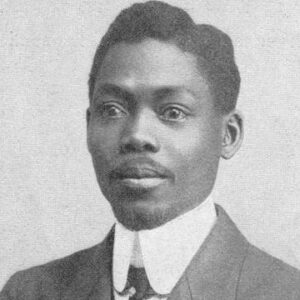Blaise Diagne is regarded as one of the most influential individuals in African politics. As a French citizen, he campaigned tirelessly for equal rights for the people of Senegal, his homeland. Adolphe Crespin adopted him as a child when he was born in Senegal to traditional African parents. Crespin was the one who gave him the Christian name Blaise when he was baptized. This provided him with numerous chances that most African children do not have, and he took full use of them. He excelled in school and went on to work for the French government as a customs agent in 1892. Diagne spent the next 22 years of his life learning about the terrible aspects of colonialism. This encounter had a significant impact on his desire to enter politics. He was the first black African to serve in the French administration in 1914, and his political career took off from there. He rose to become the most powerful political figure in Senegal’s Four Communes, where he devoted his entire career advocating for the people. He never lost an election from 1914 until his death in 1934. This is a monument to his strong moral compass, which guided his equal rights for all principle.
Childhood and Adolescence
Blaise Diagne was born on Goree Island, Senegal, on October 13, 1872. His father worked as a cook, and his mother as a maid. Galaye M’baye Diagne was his birth name. When Adolphe Crespin adopted him, he was given the name Blaise. Crespin had him christened and gave him the Christian name of Blaise. Diagne attended the Brother of Ploemel School for his primary education. In Aix-en-Provence, France, he excelled in primary school and completed his secondary schooling.
Career of Blaise Diagne
In 1891, Diagne passed the admission exam for the French Customs Service. The following year, he began working as a customs agent. In 1892, he was assigned to Dahomey for the first time. From 1896 through 1914, Diagne was a very active man. He worked in Dakar, the French Congo, the island of Reunion, Madagascar, and French Guyana during this time.
He returned to Senegal in 1914 to pursue a political career. He defeated Francois Carpot in a race for a seat in the French National Assembly. He made an immediate impression at the White House. In 1916, he proposed a law that would provide full French citizenship to four coastal Senegalese towns known as “The Four Communes.”
In 1916, he was designated as the General Governor of Recruitment for French Troops in West Africa. He was in charge of negotiating reasonable terms for French soldiers. Digane was the Commissioner General of the Ministry of Colonies from 1918 until 1920. He was in charge of the welfare of French colonial employees and soldiers in Africa.
Diagne founded the Republican Socialist Party in 1919. The party obtained control of the Four Communes’ four local administrations. In the same year, he founded “La Democratie,” a newspaper. Later, he changed the name to “L’Quest Africain Francais.” Diagne was the mayor of Dakar from 1920 to 1934. In the Four Communes, he became the face of politics.
The rest of Diagne’s term in government was spent lobbying for French rights for Senegalese citizens. Before the International Labor Organization in 1930, he spoke out against assimilation and forced labor.
He was promoted to the rank of Deputy Minister of the Colonies in 1931. He remained in this post until 1934, when he died.
Major Projects of Blaise Diagne
Blaise Diagne’s work was centered on achieving equality for all people, not only the Sengalese. During his 22 years serving as a customs agent in France’s African colonies, he experienced numerous social injustices firsthand. This motivated him to pursue a political career in which he pushed for equal rights for all people. In 1914, he was elected to the French National Assembly, which was his other great accomplishment. He was the first African to be elected to the French administration, cementing his place in African political history.
Personal History and Legacy
Raoul, H’s son, was the first black professional soccer player in France. In the 1930s and 1940s, he won multiple titles with several clubs. On May 11, 1934, he died of tuberculosis. In Senegal, he has a boulevard, a secondary school, and the country’s international airport named after him. Diagne was a member of the Grand Orient de France and a Freemason. He was the first black African to serve in the French administration at a prominent level.
Estimated Net Worth
Blaise is one of the wealthiest politicians and one of the most well-known. Blaise Diagne’s net worth is estimated to be $1.5 million, according to Wikipedia, Forbes, and Business Insider.


